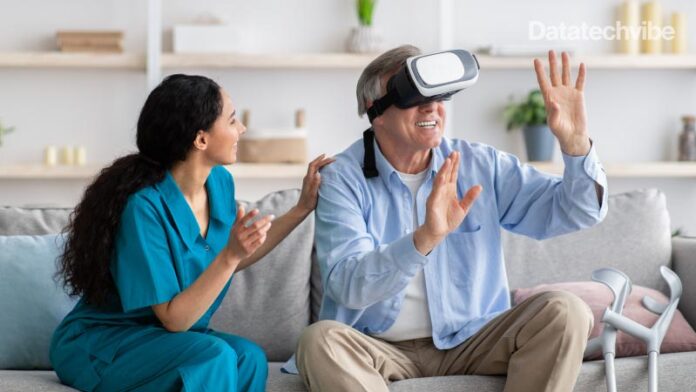AppliedVR is taking an innovative approach to a new trial for its chronic pain treatment.
Rather than try to find a group of people with chronic back pain to sign up for the trial and not get the treatment, they are pulling data from an existing database of chronic pain patients to use as a comparison group, a strategy that has the potential to make clinical trials more efficient.
Using real-world data as a patient group in a trial, often known as a synthetic control arm, can make research trials more efficient as companies don’t have to do the legwork to enrol as many people in clinical trials.
The company is collecting more information about how the treatment works in different groups in the real world. They’re partnering with healthcare data company Komodo Health on the trial. Komodo offers its clients access to a vast database of anonymised patient health records from people with a range of health conditions, including chronic pain, that follows people over time. The partnership lets AppliedVR track the experience of chronic lower back patients in general and compare their experience with the experience of people actively enrolled in the trial.
“So now, as they move forward, they’ll be able to much more clearly understand and demonstrate the value of their technology and what it delivers compared to traditional chronic pain treatments,” said Web Sun, President and Co-Founder, Komodo Health.
The company is optimistic this approach to clinical trials will become more common.









